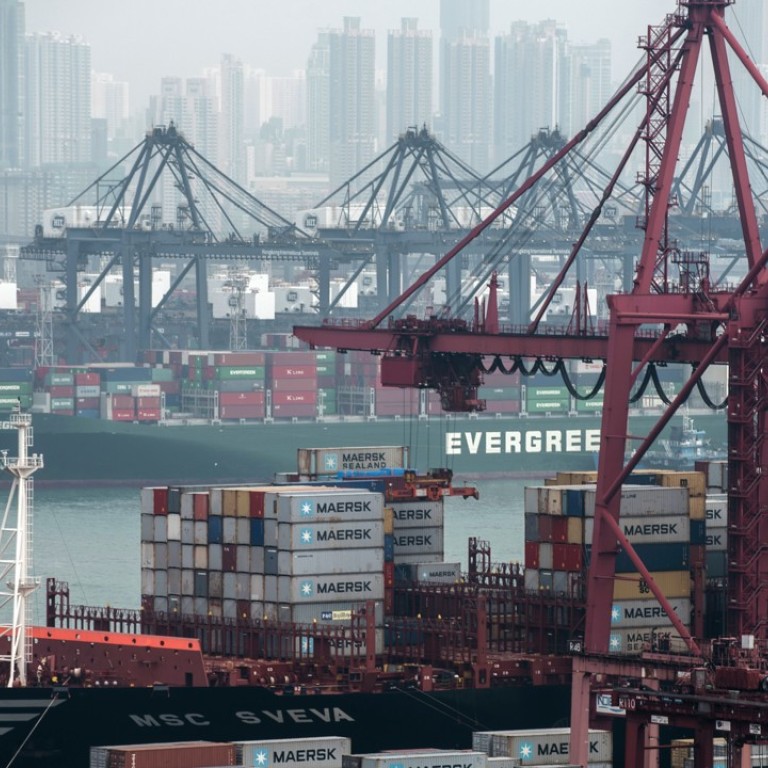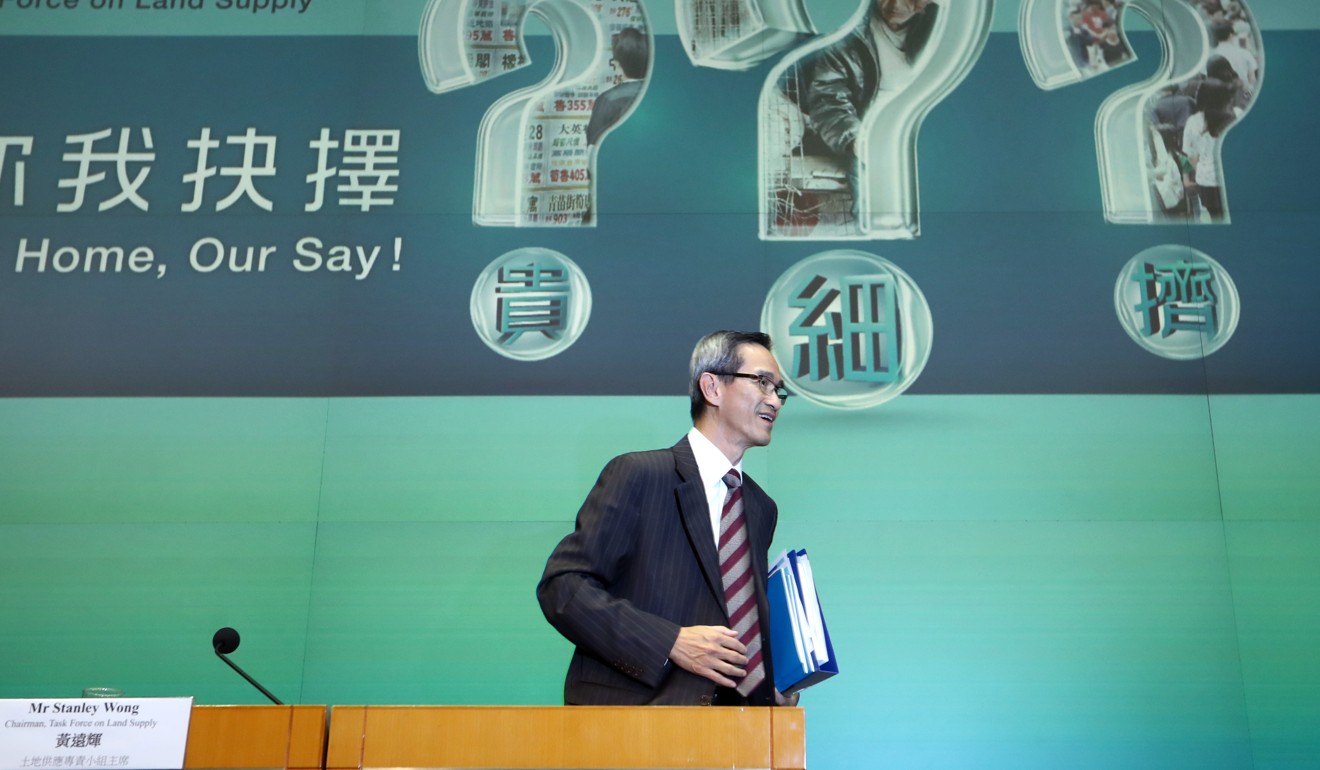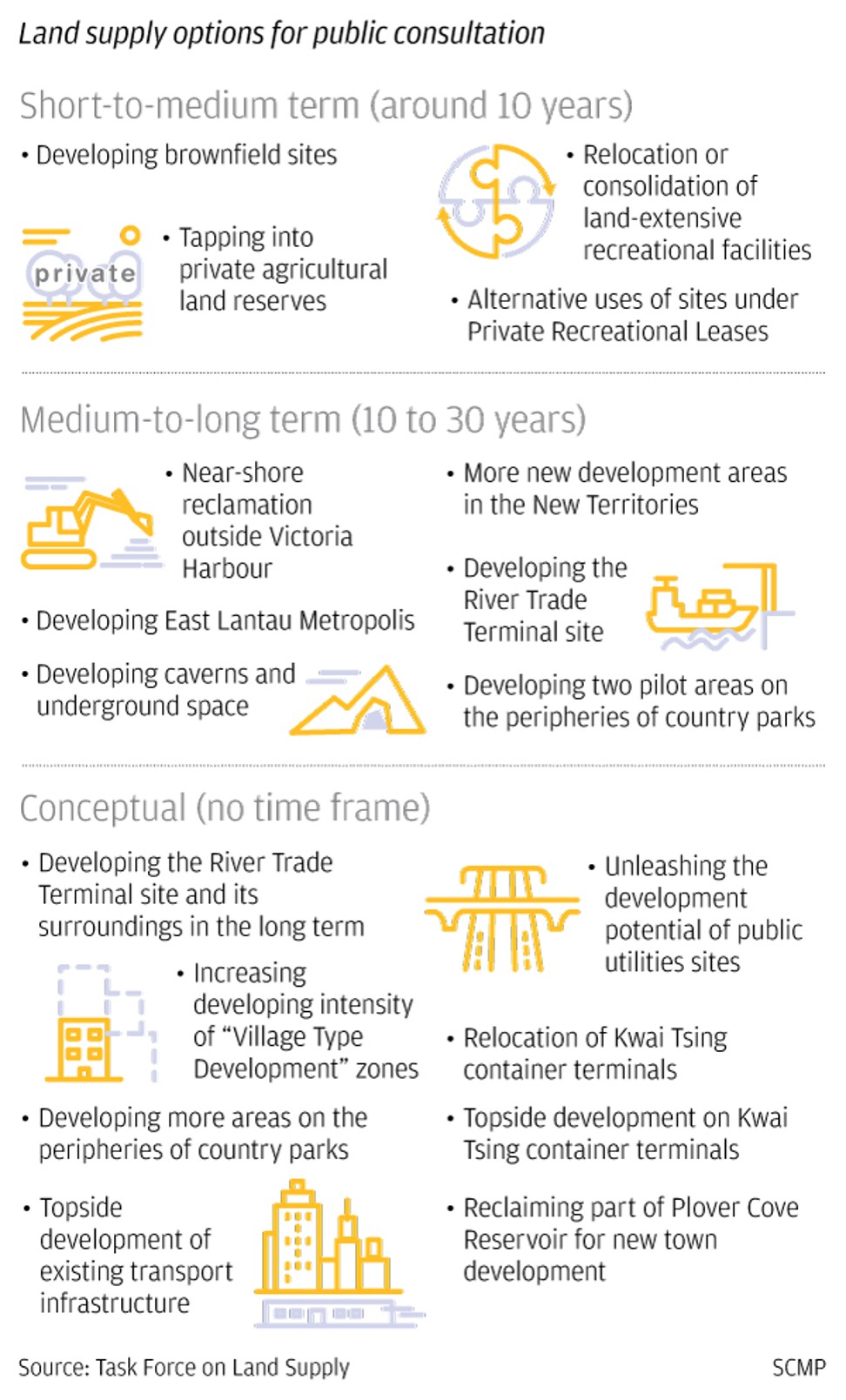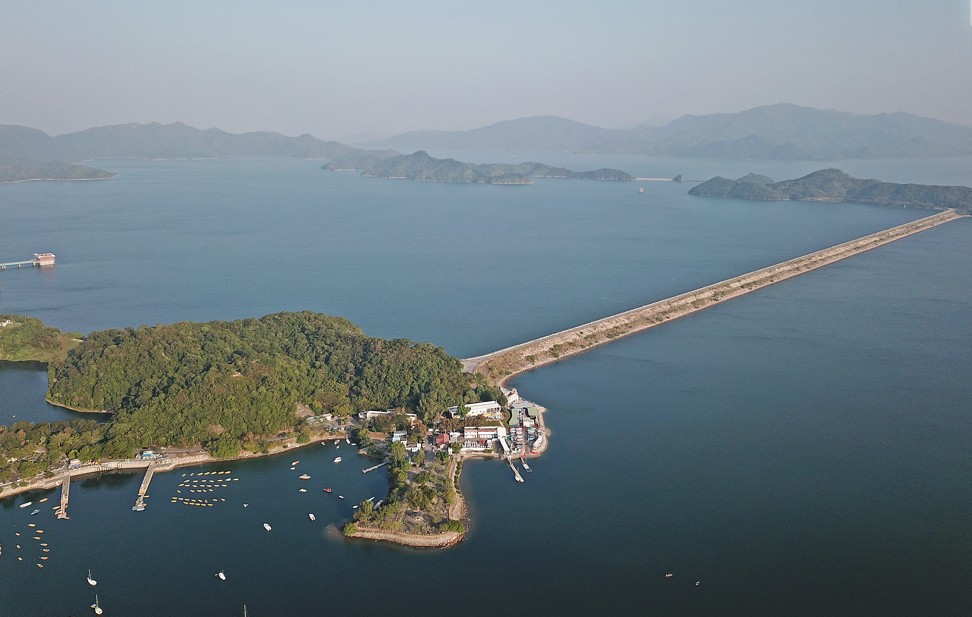
As collusion fears rise, Hong Kong land panel chief pledges to keep vested interests out of search for land for new homes
Promise made as long-awaited public engagement exercise begins on 18 options
No one stakeholder with direct interest will be able to dominate a citywide consultation on how to find more land for Hong Kong’s future development, the chairman of a land supply task force pledged on Thursday, as the force kicked off the long-awaited public engagement exercise.
Stanley Wong Yuen-fai made the promise as the long-awaited public engagement exercise began amid rising concerns about collusion.
During the five-month-long process, people will be asked to choose from 18 options to address the city’s projected shortfall of at least 1,200 hectares (3,000 acres) of land for housing and economic development for the next three decades.
MTR proposes ‘Hong Kong Town’ on mainland to ease housing crisis

Four of 17 proposals to boost Hong Kong’s land supply for new homes can yield results in 10 years, task force chief says
The task force would summarise public opinion in a final report after the consultation, he added, and would reflect those views truthfully. The report would also be published for the public’s scrutiny.
“If the majority of people in society have expressed their views, I believe they will be able to look past some stakeholders and make choices from society’s general interest.
“[Our] report will be consolidated in accordance with the consensus being built … I don’t think one or two stakeholders will be dominating the report.”

Ma’s endorsement has sparked accusations of a conflict of interest, as he is also an independent director of Husky Energy, which is controlled by Hutchison.
Joseph Chow Ming-kuen, a former president of the Hong Kong Institute of Engineers now advising Wheelock’s indirectly owned subsidiary, Harbour Centre Development, has been vocal in supporting the proposal.
Wong said the public should not consider individual advocates’ views when making decisions.
“In fact, I don’t think a rail line can fast-track the whole project as it takes time to carry out feasibility studies and to construct the line.”

On the other side, prominent businesses figures and the sports sector have voiced opposition to a proposal to develop the 170-hectare Fanling golf course.
Lam said she hoped the consultation could reach a “relative consensus”, saying a “total consensus” would be unlikely.
Wong revealed at the press conference there would also be a telephone survey that would pick interviewees randomly, in addition to online and street booth surveys that had been criticised as ripe for manipulation. But he said the survey was still being designed and he was unable to give more details about it.
The public opinion surveys are to be conducted by the University of Hong Kong’s Social Sciences Research Centre, led by Professor John Bacon-Shone.
Chung Kim-wah, assistant professor of social policy at Polytechnic University, said a phone survey was “better than nothing” but that interviewers could still frame questions in such a way as to skew the result.
He added that vested interests could still find ways to affect the consultation with their resources and political clout, and the government never promised to base its future policies entirely on public opinions.
Results of Hong Kong land supply surveys under fire even before a question is asked
Siu Wai, 44, who lives with his wife and two young daughters in a 98 sq ft subdivided flat in Kwun Tong, said he would participate in the consultation.
The Task Force on Land Supply, comprising 22 unofficial members, was appointed last August by the government. It discussed 20 proposals before shortlisting the 18 for consultation.
The 76-page consultation paper divides the options into three categories based on how fast they can yield results.
The four fastest solutions – able to produce results in about 10 years – include developing the Fanling golf course, tapping into farmland reserves held by private developers, using brownfield sites, and relocating or consolidating land-extensive recreational facilities.


